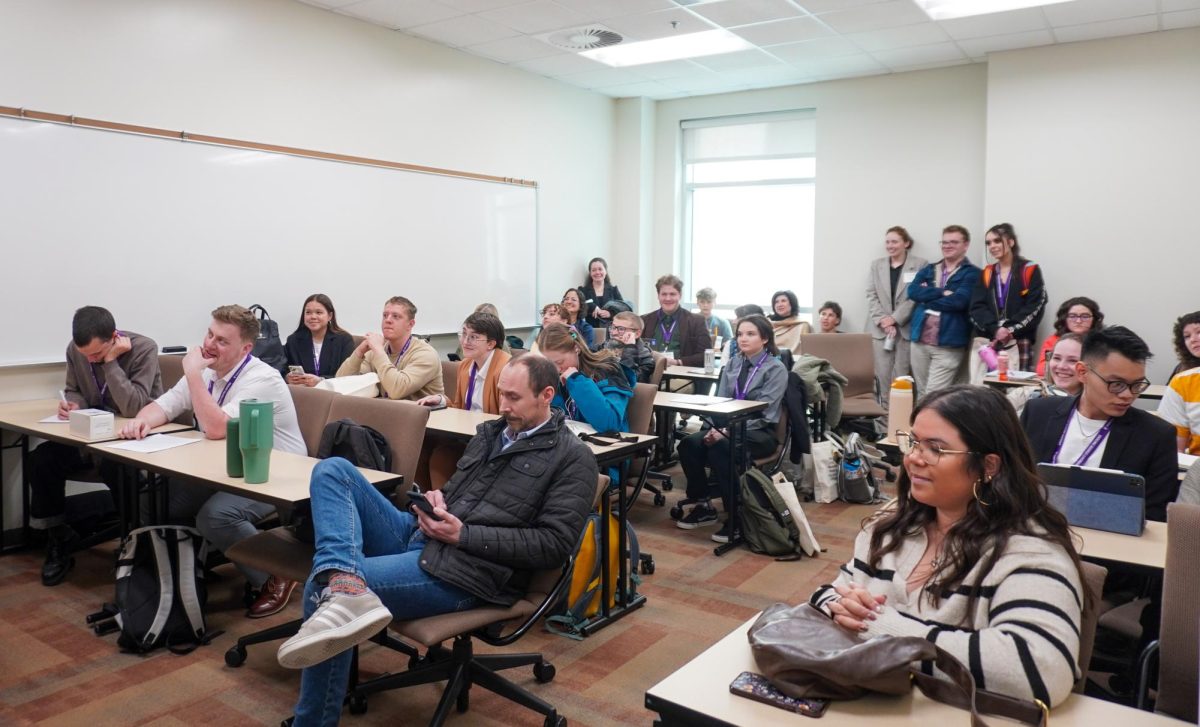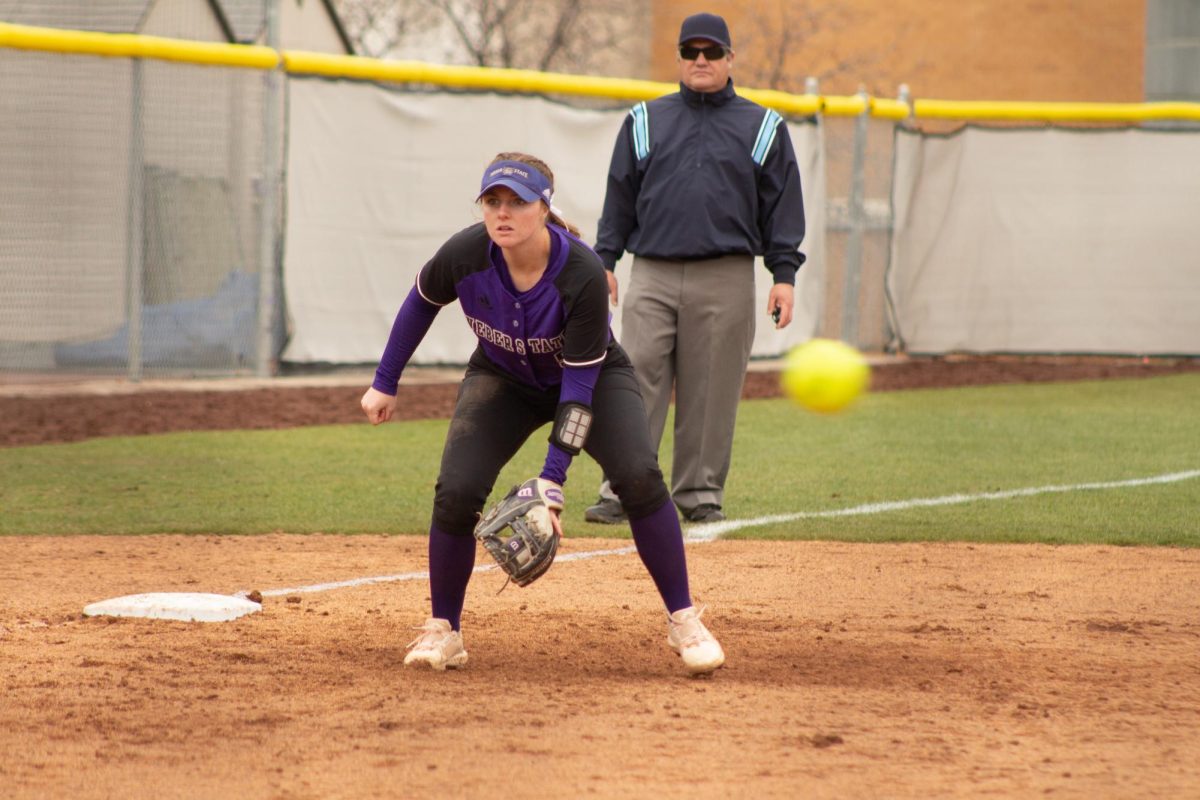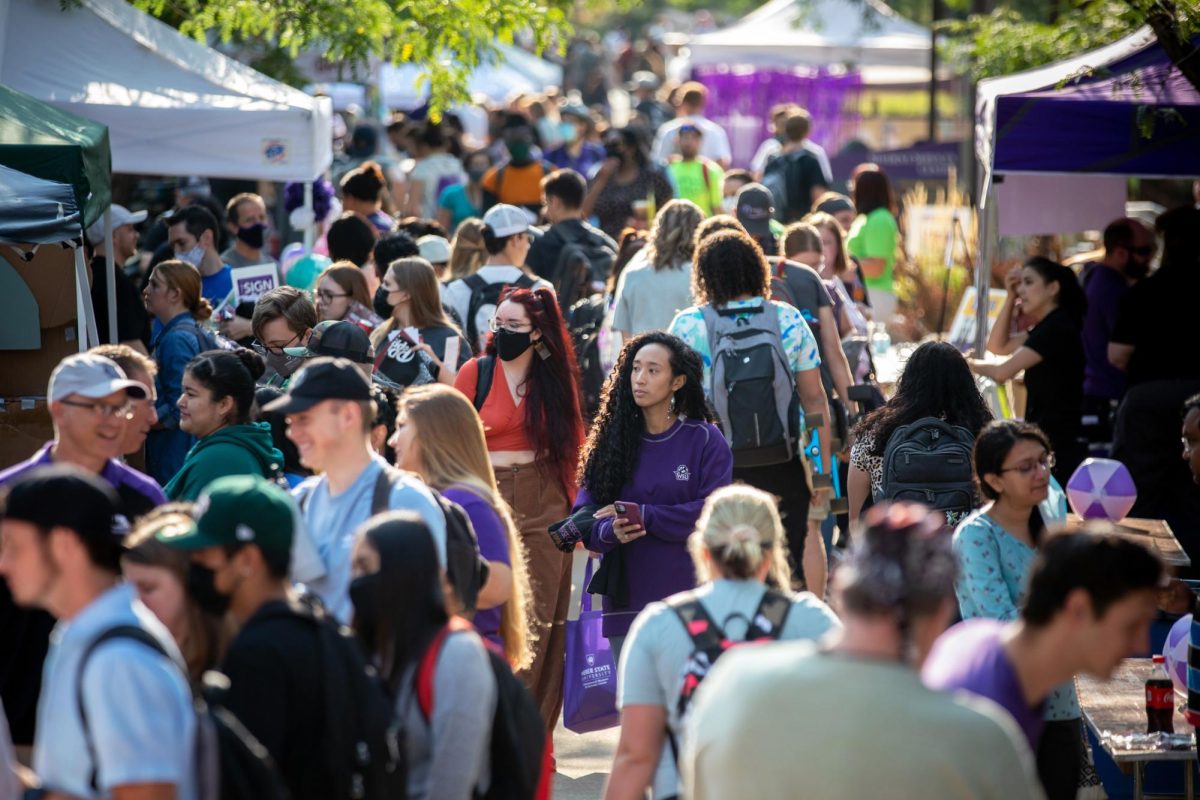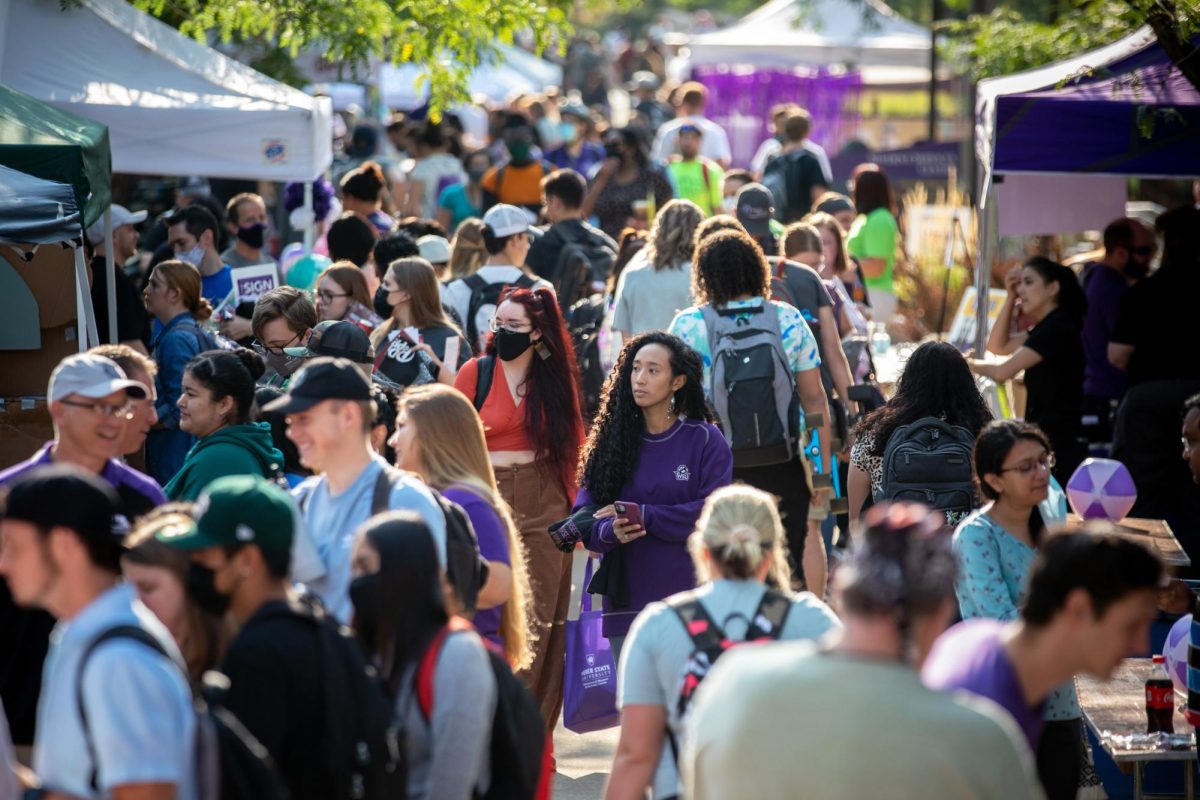Two Polynesian men walk into a bar.
This is not the beginning of a racial joke, but instead an incident that sparked a protest over the weekend.
Dozens of protesters gathered outside of Willie’s Lounge on Feb. 20 in response to an incident four days earlier when two Polynesian men, Frank Maea and Stephen Wily, were refused service at the bar.
Willie’s Lounge owner Geremy Cloyd said that there have been several problems at the bar where people have started fights, threatened the staff and walked out on tabs. To prevent future problems, Cloyd told his staff that they could refuse service to any intimidating and unfamiliar groups of people, but he said he never meant for this policy to profile people based on race.
News of this incident went viral, and one local coffee shop owner caught wind of the story. Former Weber State University student and member of the WSU Polynesian club, Mike Tuiasoa, decided that something needed to be done.

Mike Tuiasoa made a joke on social media saying he wanted to do the Haka—a traditional ancestral war cry from the Māori people of New Zealand—in the parking lot at Willie’s Lounge.
“I got such an overwhelming response of positive feedback and support,” Tuiasoa said.
After the response, he became the event organizer and spokesperson for the protest.
Although the group of protestors was initially formed around doing the Haka, event organizers and community leaders met before the event and decided that appropriating the Haka and perpetuating the stereotype of big, intimidating Polynesians was not their purpose.
“Polynesians have gotten a bad rap a lot of the time,” Tuiasoa said. “But, we need to let people know that we’re not the big, scary, violent people that everyone stereotypes us to be.”
Another former Wildcat, Taralynn Siliuta, helped organize the event.
“If she wasn’t involved, it wouldn’t have happened,” Tuiasoa said about Siliuta.
Siliuta started a private event that grew fast and culminated in this protest.
“I’m really excited to see all different people here,” Siliuta said. “They’re not just Polynesians that are out here supporting the cause.”
After the protest was over, Siliuta said she felt like the event was a success and that this wouldn’t be the last of their efforts.
“We can’t just take one step and fall off the bandwagon,” Siliuta said. “We have to keep on pursuing, and we have to make sure that our voice really is heard—not just for one night but for longer than that.”
After news of the discrimination went viral, Cloyd apologized and took responsibility for the employee who refused the two men service.
“I’m as sorry as sorry gets that the incident happened,” Cloyd said. “It was an accident. We’re making up for it. We’re moving on.”
Sione Tuiasoa, Mike Tuiasoa’s cousin, was among the protesters. He said that he has never met Cloyd, so he is hesitant to accept Cloyd’s apology as sincere because it may just be in response to the uproar.
“Honestly,” Tuiasoa said, “My feelings about it is he’s dealing with the repercussions of social media—how everyone is aware of what he did and how he feels. So definitely it’s hard to understand whether he’s really genuine about the whole situation right now.”
Sione Tuiasoa participated in the protest to set an example of not tolerating discrimination in his community. Regardless of Cloyd’s genuineness, he said that the march is still important to ensure that this kind of behavior won’t happen again.
“People need to understand,” Tuiasoa said, “that the law needs to be kept and that denying someone services because of their gender, their race or their sexual orientation is unacceptable in our eyes.”
During the protest, Cloyd stood on the sidelines and afterward shook hands with the event organizers and the two men who were refused service.
Mike Tuiasoa said that the protesters understand that this was one event among a number of other discriminatory acts, but they don’t want to minimize how inappropriate and illegal this was.
“It’s a small fire,” Tuiasoa said. “But what do you do with small fires? You put them out, and you put them out hard, and you put them out before they spread at all.”



















